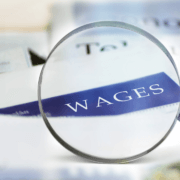Getting Back to Work
Employees who have been off work with a long-term illness could still be paid Statutory Sick Pay when they return to employment, if proposals from a recent government Green Paper go ahead.
The Work, Health and Disability Green Paper revealed that sickness absence costs employers £9 billion a year, while the additional cost to the NHS of treating long-term health conditions that keep people out of work is estimated at around £7 billion per year.
Work, Health and Disability Green Paper
The Paper proposes a number of measures to help those with long-term health conditions get back to work.
Included in the Green Paper are recommendations for a review of Statutory Sick Pay and GP Fit Notes in order to help people get back into their jobs more quickly, and to stay there for longer. The aim is that these changes will help to encourage more supportive conversations between staff and employers and enable phased returns to work which, in the long term, should improved retention, employee engagement and productivity.
The proposals look at encouraging GPs to talk to people about what work they might be capable of doing, and for attitudes to change among employers, with the intention of encouraging more contact between employers and their sick employees.
This could see HR departments conduct a vital role in liaising with employees who are off work with long-term health problems, with a view to helping them to get back to work – perhaps on a part-time or remote basis.
In some cases where the return to work is phased, employees will still be able to claim sick pay once they are back at work.
At the moment, staff who may be entitled, can claim £88.45 a week in statutory sick pay if they are too sick to work for up to 28 weeks (see the gov.uk website). But that does mean that should they return to work part time – because it is all they can manage – they lose that sick pay, even though they are not earning a full-time wage.
This change could encourage people to go back to work earlier – doing what they can manage – even if that is a part-time role.
Health and Wellbeing
The move comes as part of a realisation that getting back to work can actually help people’s health and wellbeing. Health Secretary Jeremy Hunt said: “With all the evidence showing that work is a major driver of health, this is a big opportunity – to make sure that people get the support they need, improve their health, and benefit the NHS all at the same time. I hope that health professionals will contribute their expertise so that we can ensure the best possible outcomes.”
Duncan Selbie, Chief Executive of Public Health England, commented: “Our health, wellbeing and happiness are inextricably linked to work. People in work generally have better health. So it makes perfect sense for the government to do all it can to support employers to close the gap around employment, disability and illness and to enable people to work when they can.”
If you would like to discuss how the new Green Paper may affect your organisation and employees or to have a chat about your general HR requirements, please contact Cecily Lalloo at Embrace HR.
T: 07767 308717 or send a message.
Based in Aylesbury, Buckinghamshire, Embrace HR supports business owners who do not have their own HR department or those that do but need help from time to time. We also work across the Home Counties of Oxfordshire, Bedfordshire and Hertfordshire, and also SMEs based in London.






